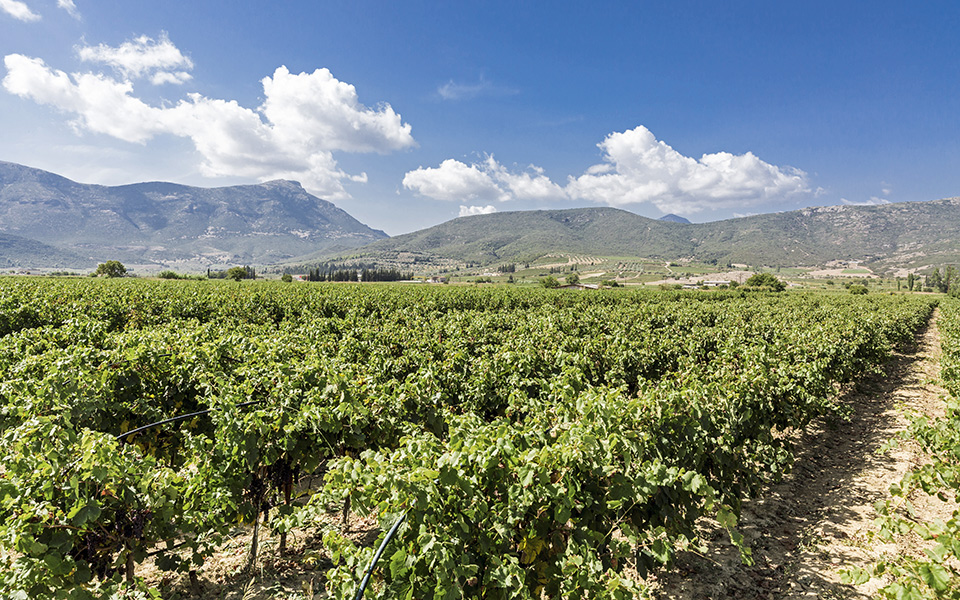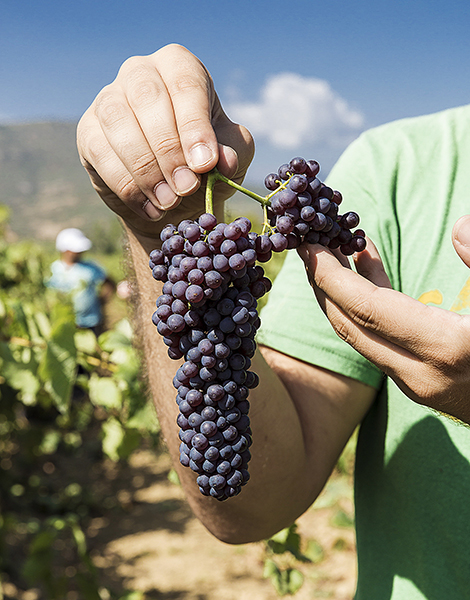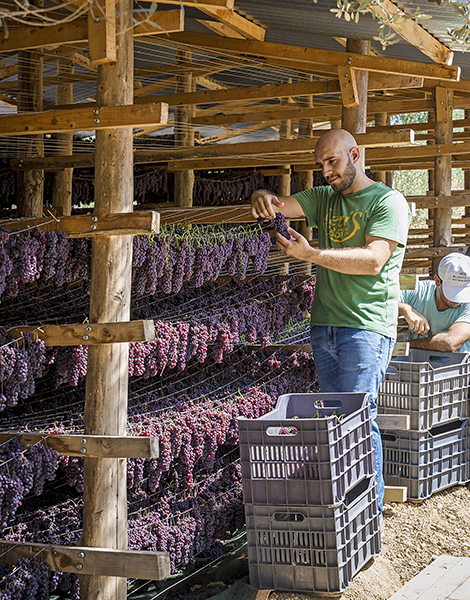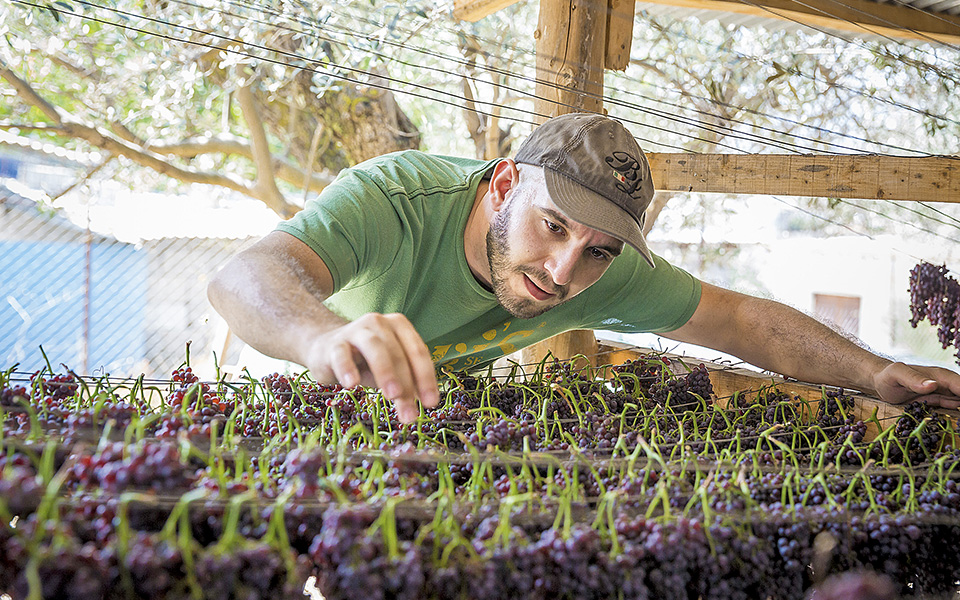Their name – Golden Black – calls to mind the time when Corinth raisins (also known as Zante currants) were Greece’s own black gold, the country’s number one export. In the 19th century the tiny dried fruits were so important to the Greek economy that in 1878 the country’s second railway line, connecting the town of Pyrgos with the port of Katakolon, was constructed to facilitate their transport, which until then had been done by mule.
27-year-old Yiorgos Mazos grew up amid the legendary vineyards of Nemea hearing stories from the golden age of the currant trade from his grandfather, a winemaker by the name of Thanassis Papaioannou. Yet more modern times were less kind to the trade and Mazos witnessed the industry’s seemingly inexorable decline.
Yet the idea of producing a high-quality raisin that would do justice to the long legacy of the fruit that has been cultivated for millennia, was ever-present in Mazos’s mind during his time studying Business Administration at the Technological Educational Institute (TEI) of Athens. After graduation he joined the army to complete his national service; on his very first leave he began experimenting.
The launch of his business in 2010 was overshadowed by the country’s gloomy economic outlook, yet Mazos refused to be disheartened. Instead this made him focus even more on his goal: to make use of the expertise he had acquired growing up – quite literally – in vineyards, combined with his business education.

© Dionysis Kouris
Casting Shade
Two aspects set Mazos’s Golden Black raisins apart: they are cultivated organically and are dried naturally in the shade. But Mazos will not take credit for the latter idea. This drying process was known at least 50-60 years ago, implemented by a few of the more passionate raisin growers.
As a method it was abandoned for being uneconomical – raisins take 3-4 times longer to dry in the shade than in the sun; specifically it takes about 10-15 days to sun-dry raisins whereas in the shade the process can take 1-2 months. However keeping the raisins out of direct sunlight drastically improves their quality, allowing them to maintain their complex aromas and high nutritional content.
The unique taste of Golden Black raisins took us to Nemea, to the organic vineyards where we saw the whole process up close. Over about 7.5 acres of vines, under bright green leaves, hang clusters of the tiny, round blue-black currants. Fruit pickers carefully cut the bunches and lay them in shallow crates with an impressive degree of care and order. They lay them gently and unhurriedly so the fruit is not bruised, taking care to even ensure that the stems are all aligned, which is helpful later when it comes time to hang the bunches for drying.
We move to the ‘shaders’ – large sheds packed with drying racks from which the previous days’ harvests already hang. Without delay the newly cut bunches are hung one by one from the natural forks in the stems. They will be left there for 30 – 60 days depending on the weather conditions.
That the grapes are hung rather than laid flat to dry is the detail that makes all the difference, as it allows the fruit to be well aerated and prevents the grapes from bursting. This in turn prevents the Golden Black raisins from having the stickiness typical of most commercially available raisins.

© Vineyards at Nemea region in Greece.

© Dionysis Kouris
International Awards
Mazos’s gamble has so far paid off and his shade-dried Golden Black currants have picked up Great Taste Awards in the UK in 2014 and 2013. The currants are packaged and shipped to shops in Greece, the UK, France, Holland, the US, Japan and others.
Modest and polite, Yiorgos Mazos stresses that it is still early days. Without subsidies or other outside assistance he sends samples and queries to delicatessens in Greece and abroad and takes part in various trade shows and competitions, covering all costs himself. Aside from raisins, Mazos also produces other high-end products such as currant jam with mastic from the island of Chios.
Looking ahead he says he plans to target specific groups of consumers such as endurance athletes; according to recent studies, Corinth raisins are a great source of energy and antioxidants, perfect for those looking for high-energy healthy snacks.
“Greek farmers, given that we can’t compete in terms of quantity with producers from other countries, need to bet on the distinctiveness and quality of our products,” Mazos says.
*Originally published in Gastronomos magazine











